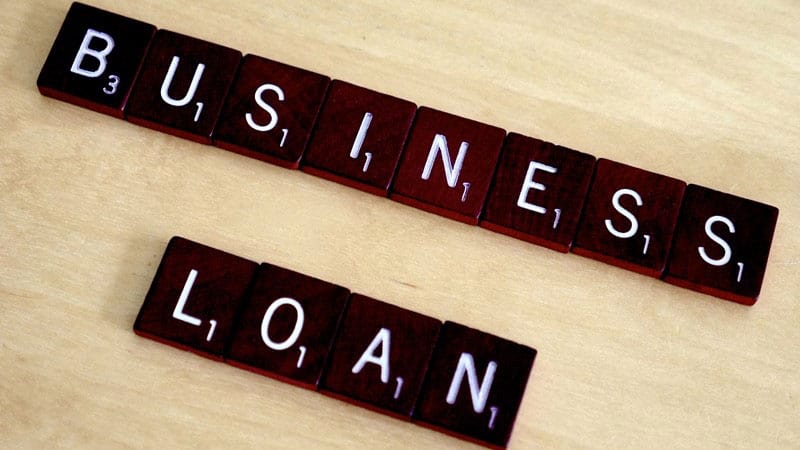Lauren: I’m here today with Bruce Nguyen, Vice President at Umpqua Bank, talking about SBA 7a loans. SBA 7a loans can be a great option if you are looking to buy a business and don’t have a lot of cash for a down payment.
What’s your experience with SBA 7a loans?
Bruce: Every transaction is a different challenge. You get to learn a lot about different businesses and how they operate. Traditional lending is very black and white. I find a lot of grey in SBA loans. I think SBA loans are more fun to put together. We don’t do miracles, but we do help people make their dreams come true.
It’s not like financing a house. It’s all about cash flow. Every business broker who contacts me trying to sell a business wants to know if I can pre-qualify their purchaser. I tell them I need to qualify the business first. I need to make sure the business cash flows. If it doesn’t cash flow, it’s a moot point. I have them send me the financials on the seller’s business. I’ll review it and I’ll approve it based on the proposed purchase price and the proposed down payment. This determines what the loan structure will be. I’ll just need to collect a personal financial statement and the tax return on the buyer. Based on what they have I can determine if it’s a match for the loan program.
How often are you working on a loan when the seller of the business knows the buyer?
I’d say the seller knows the buyer about half the times. I prefer it that way. I’m working on one right now where a key employee wants to buy the business. They know the business and the industry. It diminishes the down time in the transition.
When is a 7A Loan a good fit?
The SBA 7a loan is a great product that not many people know about. I always offer a comparison between it and other types of loans for my customers. There are pros and cons and I walk them through all of them. The bottom line is, as a business owner, you must do what’s right for your business.
A lot of people come into my office and say, “I want a 504 loan (another type of SBA loan).” I ask them why and they often tell me it’s because that’s what they were told to get. I’ll tell them let’s talk about the different types of loans and then ask them about what they are trying to do.
I worked with one business owner in Seattle who wanted to buy a $4 million building. I asked them how long did he see keeping his business in the building? He couldn’t tell me that even in three or five years out it would be the right place.
The reason I ask him this is because if you do a 504 there is a longer period that results in a prepayment penalty, versus the 7a, which has a shorter period when a prepayment applies. The fees might be a little bit higher or lower around each one, but you must look at the flexibility of each. Don’t get me wrong, I don’t sell one or the other, I don’t promote one or the other. It’s all about what makes sense for your business.
At the end of the day, he decided that 7a worked best for him.
The SBA 504 is for asset purchases only, right?
Correct.
But the SBA 7A can be used for real estate, assets, working capital…
Everything! It’s a general purpose loan.
And the term of the loan is?
The 7a max term is 25 years, fully amortized for real estate, and ten years for everything else. However, for real estate we can structure it however the customer wants it. We can structure it for 10, 15 or 25 years.
It’s 10 years max on the equipment and acquisition piece. In the past, working capital was 5 to 7 years, equipment was always 10 years. So, SBA just changed everything to a 10-year term. It makes everything easier.
Even if the life span of the equipment is less than 10 year?
Yes. Let’s say you buy a large piece of equipment and it’s valued at $300,000. The term on a conventional (non-SBA) loan is going to be five years, max. Why not go SBA and get 10 years? Customers will ask me, “But what I want to pay it off sooner, like 5 years?”
I tell them I can always pay it off sooner. You know what your minimum payment is. You know what your profit is. You can always decide to double your payment and pay it off faster with no prepayment penalty.
I think many business owners don’t understand the difference between profit and cash flow. They don’t realize the opportunity costs of not having cash available for the business. You don’t have to spend it, but there are lots of ways to use it.
Not having enough cash can hinder your growth. These large payments can leave you handcuffed.
I’m assuming sometimes you see an older owner, who’s thinking about transitioning out, and you have a younger owner coming up. The older owner is not interested in taking on more debt, but the younger generation sees a lot of opportunity and has more appetite for risk (and debt). I’m assuming this type of loan would enable a new owner to take advantage of the opportunities out there.
Yes, absolutely.
Have you had situations where the business has an existing loan (SBA or otherwise) in place? Can you use a new SBA loan to pay the old loan off?
Yes. Depending on the type of business, we can do a new loan, pay off the old and piggy-back a line of credit. Because they need that line of credit especially if they carry accounts receivable and especially if they carry inventory. It’s usually not, “Here’s your term loan and that’s it.” Usually it’s a combination of term and a credit line.
In a situation when you have a younger generation family member or a key employee who want wants to buy an existing business that this person might not have a lot of cash available for a down payment. What’s the minimum equity required for these loans?
The SBA has changed the rules. It the past it used to be 15-20% down payment required to purchase a business, without real estate.
Now, it’s a minimum of 10%. The seller can carry some of that 10%, but only up to 50%.. However, there are various ways for the buyer to come up with the rest of the amount. Home equity is allowed, along as there is a secondary source of repayment. Gifted funds are another. And, they can bring in equity investors. All of that would be in addition to the seller carry-back (the portion that the seller finances). Of course, the seller carry-back would have to be on full stand-by for the life of the loan, which is ten years.
Are the sellers having to guarantee anything else on the loan besides the carry-back portion of the down payment?
No, the buyers are the main borrowers and guarantors.
What are you looking for in a buyer, besides capacity to pay the debt?
Industry experience is the main thing. Even in a franchise, we want to make sure the buyer has some experience in the industry. That’s the strongest point. If they don’t have it, we want to see them bring in a manager who does have that experience.
What’s the maximum loan amount?
Maximum aggregate dollar amount is $5 million.
Can there be more than multiple partners buying a business?
Yes. Anyone with 20% or more ownership would have to have sign a guarantee. Even if you are less than 20%, we want to look at everyone’s financial statement.
The SBA also has a liquidity limit. If the buyer can get another type of loan, or can do it without a loan, they won’t be eligible for an SBA loan. For a loan under $500,000, you can’t have more than two times the loan amount in liquid assets, not including IRAs or retirement fund. For loans over $500,000, you can’t have more than one and half times in liquid assets on hand.
Is there a requirement to have an operating agreement in place?
Yes, an operating agreement is always a must. We want to know who the guarantor is and how much they each own. Who is the managing member (or members)? We’ll need a guarantee from each of them.
The SBA requires new owners to have a business plan, with two years of projections with assumptions. However, I’ve come up with a business acquisition questionnaire which I use in lieu of a business plan. It’s 20 specific questions which I tell applicants to answer in paragraph format. The more details they can put in, the better. For example, who are going to be the key employees once you take over the business? The more information they can give us, the less questions we get from our underwriters.
Another question on the list is what’s the succession plan? In the event of your absence, who is going to take care of the business? The SBA will require a life insurance policy if it’s a sole member and no succession plan is in place. Sometimes, that insurance can be expensive depending upon your age and other factors.
Why should people bank with Umpqua Bank?
Umpqua is in the top 1% of SBA lenders in the country. Last year, in Washington, we were the ninth largest SBA lender. We do things a little bit different. We’re still very prudent in our underwriting, but we’re open to all sorts of transactions. We don’t have a checkbox that we go through.
That’s why doing SBA lending with Umpqua Bank is so exciting. We look at what you’ve got and try to make it work. The other day, I looked around at our last sales meeting and realized we had over 500 years of SBA banking experience in the room. That makes a difference!
I like to be hands-on. You’re not just a number. I know my customers. I get most of my business from referrals from other customers.
Timeline? Let’s say people have their information together with accurate financials and other records. How much time does it take to get loan approval?
It can be just 7-10 business days once they have everything together. Again, if they’ve done a good job on the business questionnaire, it really speeds up the underwriting part.
I tell my business customers, whatever it is – good, bad, or indifferent — just let me know. I hate surprises!
The other thing for existing business owners to know is: when things are going well, get all the business financing you need. Don’t wait until you need it! It’s much easier to get a loan before things go down. You don’t need to use it. Just have it on hand just in case.
Every business needs a business credit card and a line of credit, working in tandem. If you can’t pay the card off in 30 days, move it to the line of credit with lower interest.
I can imagine you’re a great resource for your customers.
I try to be! I tell them, just send me an email, ask me the question and I’ll get back to you right away.
Thanks!




